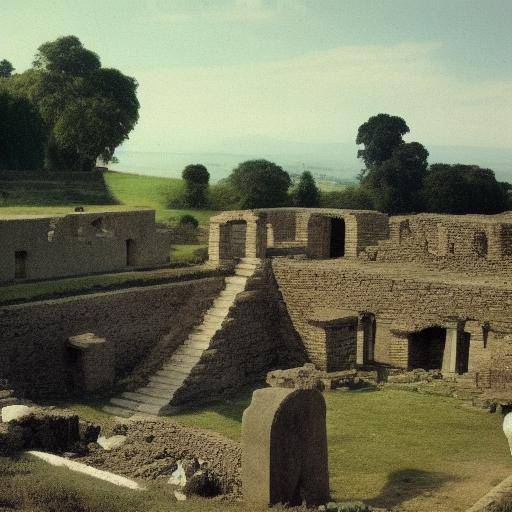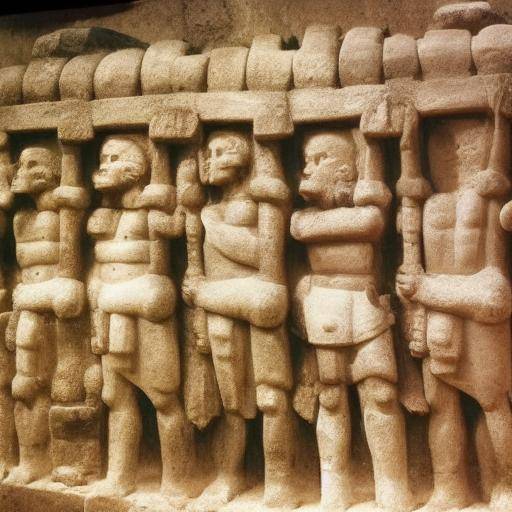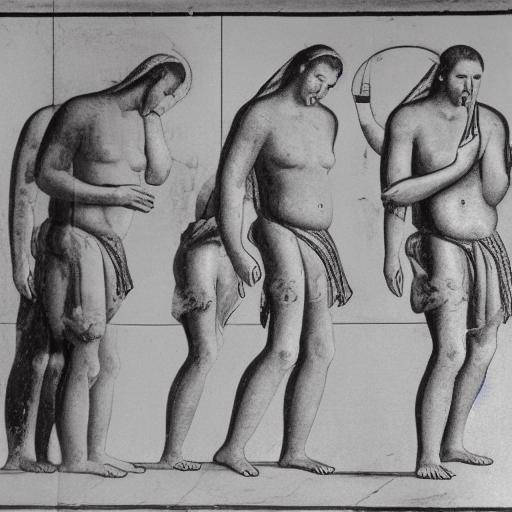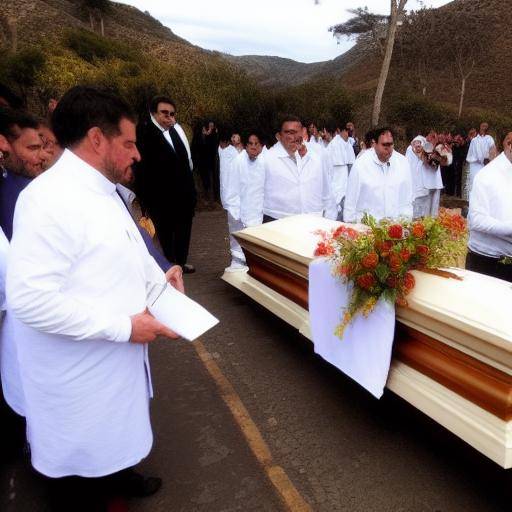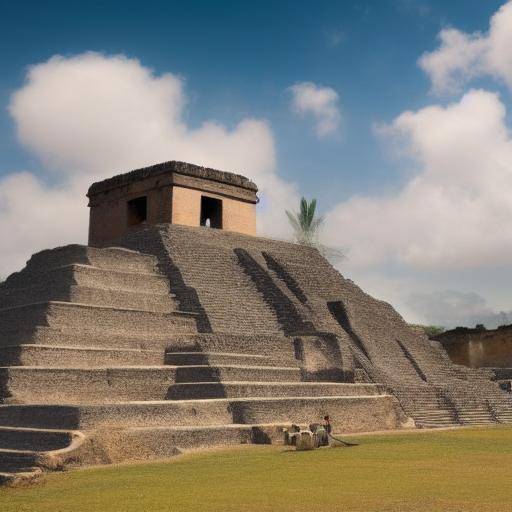
The practice of burial has been fundamental in ancient civilizations, revealing not only the treatment of the deceased, but also the beliefs, traditions, and cultural aspects of these societies. In this article, we will explore the meaning of burial in various ancient civilizations, associated funeral rituals, and their significance in history. From the mysterious pyramids of Egypt to the imposing tombs of China, burial has played a crucial role in the legacy of humanity.
Introduction
The way a civilization treats its dead deeply reflects its worldview and values. In the case of ancient civilizations, burial not only represented the care of mortal remains, but was intrinsically related to their religious beliefs, their conception of life after death, and their understanding of transcendence. By exploring the meaning of burial in these cultures, we can better understand its history, its social organization, and its spiritual development.
History and Background
Ancient civilizations, from Pharaonic Egypt to the majestic imperial China, attached fundamental importance to the burial of their loved ones. In Egypt, the Pharaohs were buried in elaborate pyramids with treasures and provisions, destined to accompany them in their future life. On the other hand, in China, the tombs of the emperors and nobles were filled with exquisitely crafted art, jewels and utensils, designed to ensure their well-being in the beyond.
The practice of burial in these civilizations not only involved an act of burying mortal remains, but also involved complex funeral rituals, including offerings, prayers, and the participation of priests or spiritual leaders. These rituals were a manifestation of respect for the dead and an expression of supernatural beliefs that guided the life of these societies.
Analysis in Deep
The burial of ancient civilizations was not only a farewell act, but it entailed a deep symbolic and emotional burden. In Egypt, for example, pyramids and funeral complexes represented not only the final abode of Pharaohs, but also an affirmation of the power and greatness of Egyptian civilization. Similarly, in China, imperial tombs were not only cemeteries, but symbols of wealth, prestige, and dynastic continuity.
Furthermore, funeral rituals associated with burial reveal to us the vision of life after death in these civilizations. The offerings and ceremonies fulfilled the function of accompanying the deceased on his journey to the beyond, thus ensuring his well-being and protection in the spiritual realm. These practices reflect the belief in a transcendental existence and the need to maintain the link between the living and the dead.
Detail
The burial of ancient civilizations has been the subject of various approaches and perspectives by scholars. Some argue that these practices reflect deep respect for life and death, as well as a complex understanding of human existence. Others believe that burial and funeral rituals served as tools to maintain social order, strengthen political authority, and perpetuate the cultural identity of these civilizations.
In addition, it is interesting to note how burial has evolved over time, adapting to social, political and religious changes. The ancient civilizations not only left an architectural legacy in the form of tombs and mausoleums, but also a spiritual legacy that has endured to date. Although funeral practices have varied over the centuries, burial in ancient civilizations continues to be a theme of fascination and study for archaeologists, anthropologists, and historians.
Comparative analysis
By comparing the funeral practices of different ancient civilizations, such as Egyptian, Greek, Roman or Chinese, there are interesting similarities and contrasts. For example, all these cultures attached great importance to life after death and performed rituals to ensure the well-being of the deceased in the beyond. However, artistic representations, funeral objects, and beliefs in the beyond varied substantially from one civilization to another, revealing the wealth and diversity of human experience in the context of death.
Practical Tips and Recommendations
While the funeral practices of ancient civilizations may seem distant in time, we can still draw lessons and symbolisms relevant to contemporary life. The importance of honoring the deceased, celebrating the lives of those who have left us, and maintaining an emotional bond with our ancestors, are aspects that transcend temporary and cultural barriers. In addition, the study of burial in ancient civilizations invites us to reflect on our own conception of death, mourning, and transcendence.
Perceptions of Industry and Expert Reviews
Experts on archaeology, anthropology and religious studies agree that the analysis of burial in ancient civilizations not only allows us to understand the past, but also offers significant perspectives on human nature and our spiritual aspirations. In addition, research in this field has led to surprising archaeological discoveries, broadening our knowledge of the life and beliefs of these ancient cultures.
Case Studies and Practical Applications
Archaeological discoveries related to burial in ancient civilizations have not only enriched our historical acquis, but also contributed to the understanding of the cultural and spiritual evolution of humanity. The study of funeral practices in these societies gives us a more complete vision of their cosmovision, their social organization, and their legacy in the contemporary world.
Future Trends and Predictions
As archaeology and anthropology continue to advance, new discoveries and interpretations of burial are expected in ancient civilizations. These findings will not only enrich our understanding of the past, but also promote wider intercultural dialogue, enriching the diversity of perspectives on death and beyond.
Conclusion
Burial in ancient civilizations represents much more than the mere disposition of mortal remains. It is a window to the soul of these cultures, their beliefs, values, and hopes in life after death. By exploring these funeral practices, we can honor the legacy of those who preceded us and gain a deeper understanding of the human condition throughout history.
FAQs
**1. What was the importance of burial in ancient civilizations?**The burial of ancient civilizations was crucial, as it reflected not only the care of mortal remains, but also the beliefs, traditions, and cultural aspects of these societies. In addition, he was intrinsically related to his conceptions of life after death and his understanding of transcendence.
**2. What do funeral rituals reveal about ancient civilizations?**Funeral rituals reveal the vision of life after death in these civilizations, as well as the way they honored and cared for the well-being of the deceased in the beyond. These rituals were a manifestation of respect for the dead and an expression of supernatural beliefs that guided the life of these societies.
**3. How have funeral practices evolved over time?**Funeral practices have evolved adapting to social, political and religious changes throughout history. Ancient civilizations left an architectural and spiritual legacy that has endured to the present day, and burial remains a theme of fascination and study for various fields of research.
**4. Why is it important to study burial in ancient civilizations today?**The study of burial in ancient civilizations offers a deeper understanding of human condition, enriching our vision of history, spirituality and transcendental aspirations. It also promotes a wider intercultural dialogue, enriching the diversity of perspectives on death and beyond.
**5. What are the similarities and differences between the funeral practices of ancient civilizations?**Although they all attached great importance to life after death, artistic representations, funeral objects, and beliefs in the beyond varied substantially from one civilization to another. These differences reveal the wealth and diversity of human experience in the context of death.
**6. What contemporary lessons can we draw from the study of burial in ancient civilizations?**The study of burial in ancient civilizations invites us to reflect on our own conception of death, mourning, and transcendence. It offers us lessons on the importance of honoring the deceased, celebrating the lives of those who have left us, and maintaining an emotional bond with our ancestors, aspects that transcend temporary and cultural barriers.
In conclusion, burial in ancient civilizations transcends the mere act of burying mortal remains, revealing deep spiritual beliefs, rooted traditions and an expression of respect for the deceased. The study of these funeral practices offers a window to the past, enriching our understanding of history, human spirituality, and promoting a wider intercultural dialogue on death and beyond. The lessons learned from burial in ancient civilizations remain relevant today, enriching our understanding of human condition throughout history.

